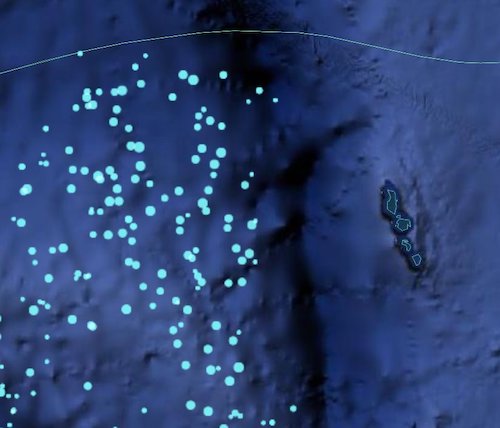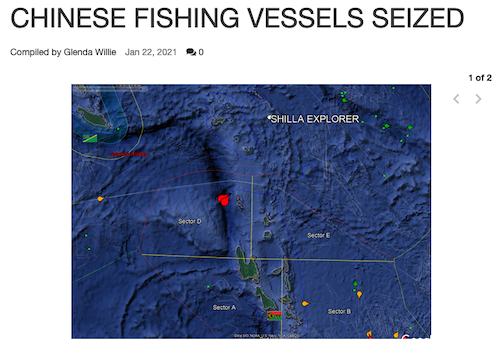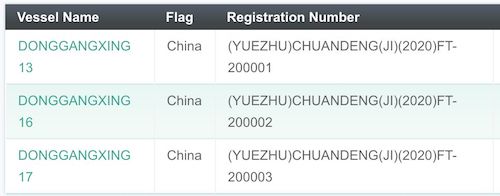COMMENT: By Michael Field
Docked and under some kind of arrest in Port Vila, Vanuatu, are two Chinese flagged fishing boats, allegedly caught in unauthorised waters.
Of course it makes headlines, but the truth here is decidedly murky.
The arrest of Donggongxing 13 and 16 is headline stuff; South Pacific nations seldom arrest Chinese boats. It causes too much trouble with Beijing.
- READ MORE: Vanuatu seizes Chinese fishing vessels
- Chinese vessels detained by Vanuatu, accused of fishing illegally
After all there are between 200 and 300 Chinese boats operating in Vanuatu’s 663,251 sq km exclusive economic zone. Few of them are ever seen in Vila or Luganville; they all operate out China’s biggest South Pacific fishing base – Suva, Fiji.
All of them are either longliners or purse seiners, taking tuna.
But not these arrested boats.
Now this is odd – this is a case of the arrests being less significant than the class of boat.
Known as ‘pot vessels’
In the Western and Central Pacific Fishing Commission (WCPFC) register of 3450 fishing boats there are just three – all three are Chinese – known as “pot vessels”.
The names of the exclusive three? Donggongxing 13, 16 and 17.
Why are the region’s only pot vessels sitting off Hiu in the Torres Islands?
The police map issued to the media shows they were arrested 32 km west of Hiu. That puts them inside Vanuatu’s territorial waters (not the EEZ) as defined by the Marine Zones Act 2018.

As the Global Fishing Watch screen grab shows, there are plenty of Chinese boats (out of Suva) around Hiu – in the EEZ but not in territorial waters. Even the Chinese avoid going into territorial waters; getting caught is too easy (especially if the French send a jet aircraft).
However, it should be noted that neither Donggongxing 13 nor 16 show up on Global Fishing Watch: they had their positioning systems switched off.
A tuna boat probably has no real reason to go into territorial waters, but WCPFC data gives a possible clue. The vessels were authorised to catch grouper and sea cucumber.

Both catches are lucrative
Although beche de mer and grouper are ocean species, they are also easy to catch closer to shore, inside territorial waters. It is why the Vietnamese “blue boats” were reaching into the South Pacific. Both catches are lucrative.
All three Donggongxing vessels are owned by Zhuhai Dong Gang Xing Long Distance Fishing Co. Beijing has given the relatively new company permission to fish in Mauritania in Africa, and Vanuatu.
Their permissions were given under the Chinese government’s “One Belt, One Road” (the Belt and Road Initiative (BRI)).
Because China has given an international commitment to eventually cut back on building new fishing boats, Dong Gang Xing has been constructing them quickly. Ten are targeting for the Pacific.

And this is where it gets odd; the company says they have permission under BRI to build a base in Vanuatu.
Why they believe this is not clear. Vanuatu has not said anything but has instead arrested two boats.
But were the two boats in territorial waters because they believed that under the deal between Vila and Beijing, Chinese boats can now enter territorial waters?
And if so, is Vanuatu heading for a diplomatic row with China?
Michael Field, who writes for Nikkei Asia, has provided this article for Asia Pacific Report.
